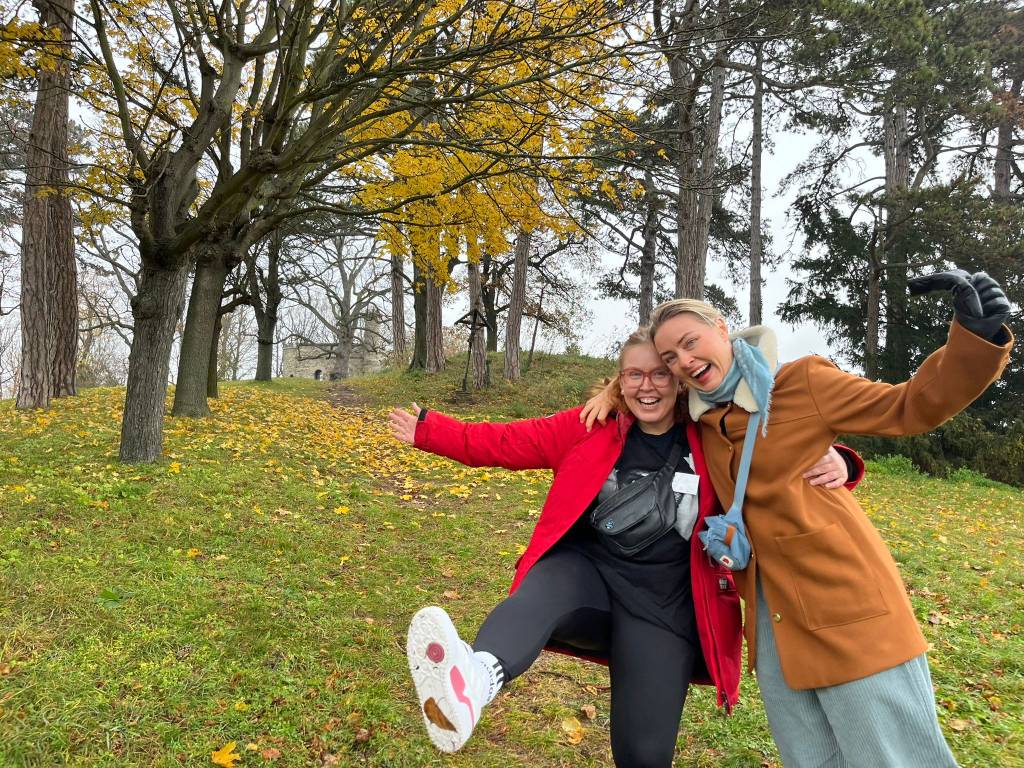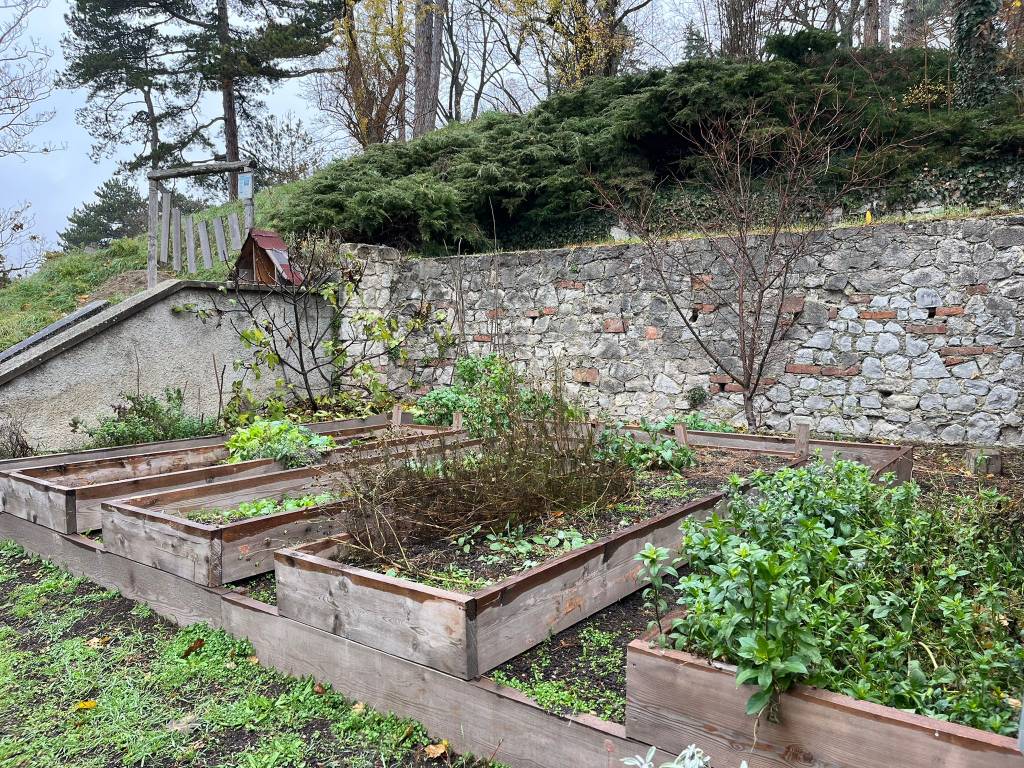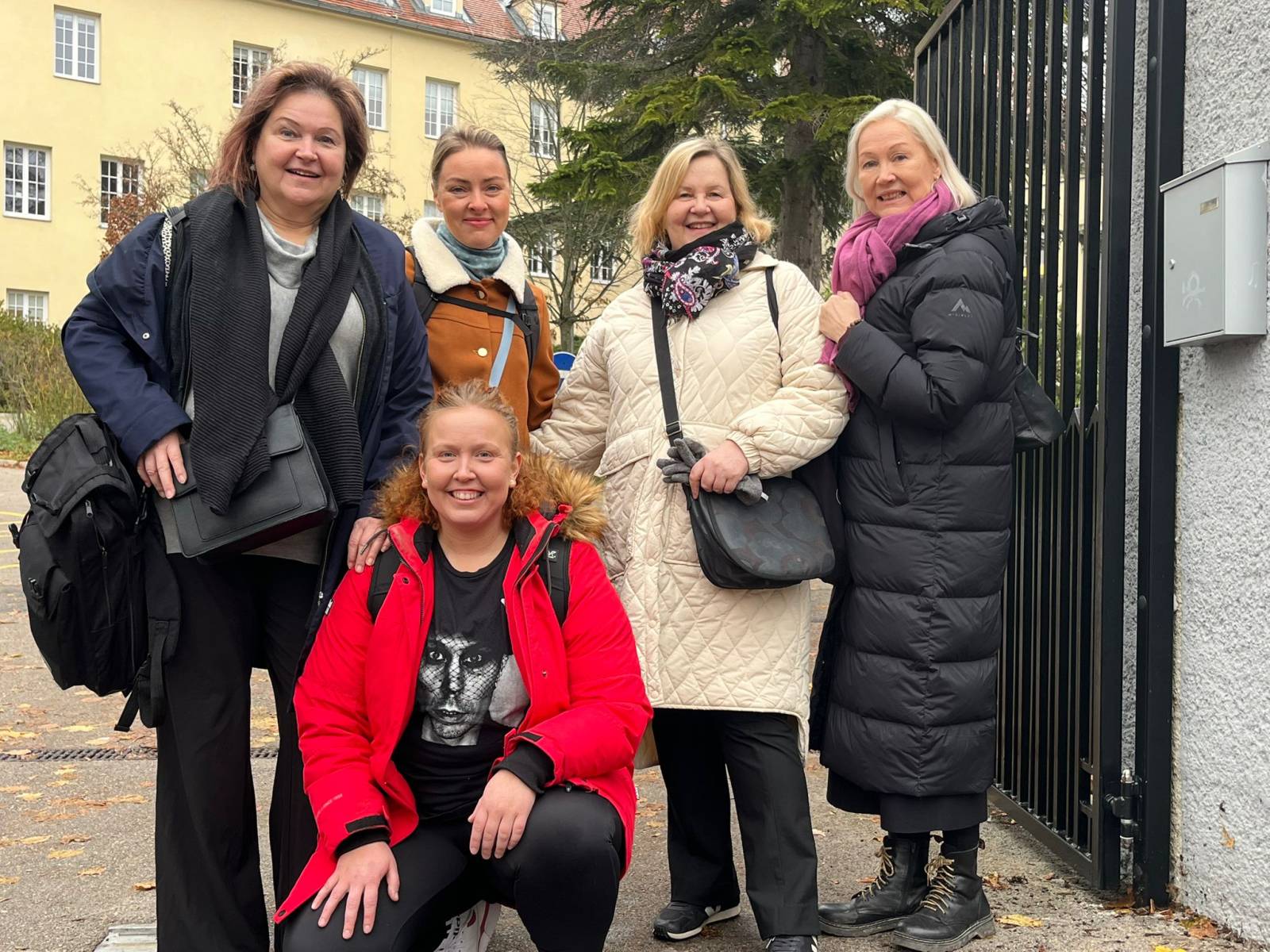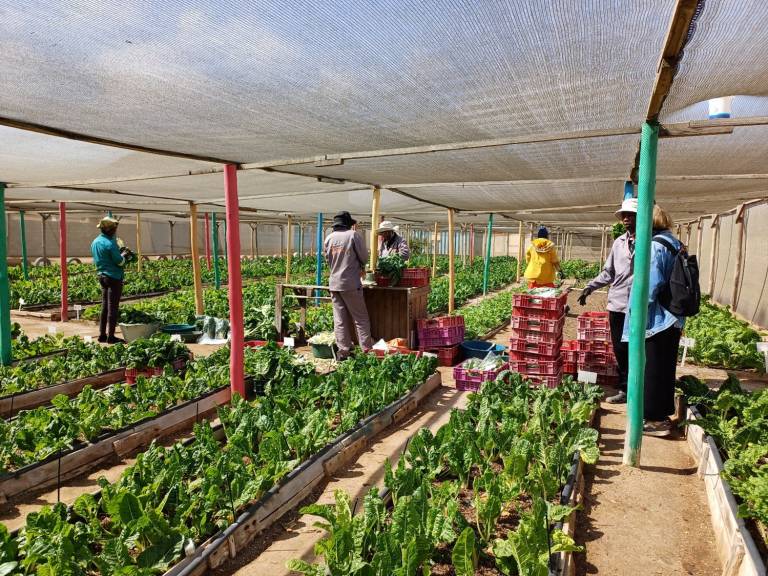The workshop was organised by the University College for Agricultural and Environmental Education (HAUP). The purpose of the workshop was to encourage us to reflect on our roles as educators, examine the importance of sustainability, and explore ways to further integrate sustainability into our teaching practices. To foster the development of students’ green skills, it is essential that the teachers are able to create opportunities for this growth and support.
All five of us from TAMK are from the Business and Media unit, so this event was also an opportunity to get to know each other better and learn from one another. I am Sanna Tahlo, and I am from HUBS, where we offer optional, sustainable entrepreneurship courses to all students at Tampere University and Tampere University of Applied Sciences. This trip to Vienna and the workshop was a chance to deepen my understanding of sustainability and, in particular, in Green Pedagogy.
The overall purpose of the Personal Green Skills in Higher Education project is to develop students’ green skills. Tampere University of Applied Sciences is one of five project partners, alongside institutions from Austria, Spain, Germany, and Lithuania.
At HAUP, Green Pedagogy lies at the heart of all our activities. It is an educational approach that encourages learners to reflect on their learning and teaching strategies in the changing world. The Green Pedagogy model emphasises environmental awareness and sustainability. It engages students in activities that promote critical thinking and problem-solving skills. This educational approach is crucial in a world where environmental issues present major challenges to the planet’s health and well-being. (HAUP, 2025).

Our biggest learning experience during the three-day train-the-trainer workshop was discovering the didactic model of Green Pedagogy, which encompasses systemic thinking, problem-based learning, multidisciplinarity, multiperspectivity, cooperation, and the consideration of learners’ emotions. We were particularly challenged by the concept of multiperspectivity. It highlighted the importance of fostering greater dialogue and gaining a deeper understanding of diverse perspectives and values—something that is crucial in today’s world.
It would be beneficial to design learning opportunities where students from diverse fields can engage in meaningful dialogue and learn from each other. For instance, at HAUP, they have established environments where students from Agriculture and Environmental Studies collaborate on discussions about a sustainable future—focusing on learning from one another, rather than debating opposing views on issues like meat production.

Green Pedagogy can also provide a framework for sustainable entrepreneurship education in HUBS. Multiperspectivity supports students’ critical thinking, understanding of sustainability, and ability to see entrepreneurship from different viewpoints. Green Pedagogy also encourages the use of diverse learning environments and methods. For example, we can encourage students to collaborate with local businesses, experts, and communities, gaining practical experience in sustainable business practices and different perspectives. Multiperspectivity helps to recognise and appreciate diverse values and perspectives, encouraging students to think more broadly and openly. Students are the ones shaping our future—they will become entrepreneurs, employees, decision-makers, politicians, and influencers.
In the book The Future of Sustainability Education at North American Universities, the authors pose thought-provoking questions: If we are preparing future leaders to work for sustainability, what should we do? How do we balance reading and experiential learning? What kind of experiences should we offer for students? If I am in the role of a coach and can decide, what should a course include? (Bergström & Krogman, 2022, pp. 148–149). Here is the chance to bring the Green Pedagogy in.
To sum up, Green Pedagogy and multiperspectivity can help students develop systems thinking and creative problem-solving skills. In entrepreneurship, it is crucial to integrate various disciplines, innovate new practices, and adapt to the changing world and its needs. Through Green Pedagogy, we can create learning processes that encourage students to ask questions, challenge ideas, and experiment with new solutions for building a sustainable future.
What’s Next in Practice?
In Vienna, the train-the-trainer workshop was facilitated by two HAUP educators, Stephanie Mairhofer and Lea Köder. During the session, Lea and I started exploring ways to collaborate beyond the workshop and continue learning from each other. As a result, we are excited to welcome Lea to TAMK in March for our HUBS course, Sprint Innovation Festival, as an expert. The Sprint Innovation Festival is an annual event and course that brings together higher education students, companies, municipalities, third-sector organisations, as well as experts and researchers from various fields. (HUBS, 2025). This year, the course’s theme is Building a Sustainable and Humane Future, and we are thrilled to have Lea supporting our students’ work during the Sprint.
The Personal Green Skills in Higher Education project will also continue in the spring of 2025. Each project partner from Finland, Lithuania, Spain, Austria, and Germany will send students to learn more about sustainability. From TAMK, five students will participate in May 2025 in a blended-intensive program (BIP) aimed at developing sustainability and intercultural skills through a highly interactive and innovative format. The course is designed for students who are motivated to learn, explore new perspectives, and engage with global sustainability challenges. Participants will enhance their sustainability skills in the context of climate change, adopt environmentally responsible behaviors in their daily lives, and advocate for sustainable practices. The BIP is organised by the Technical University of Würzburg-Schweinfurt (THWS) in Germany.
With Green Pedagogy, we have embraced the idea of multiperspectivity also in our HUBS studies. We are currently working on a new online course about sustainability, where we are designing assignments and learning opportunities that require students to apply multiperspectivity—broadening their thinking and perspectives.
By integrating Green Pedagogy into our education, we can equip students with the skills and mindset needed to tackle sustainability challenges and contribute to a more responsible and innovative future.
Sources:
Bergstrom, Apryl & Krogman, Naomi. 2022. The Future of Sustainability Education at North American Universities. (E-kirja). Edmonton: University of Alberta Press.
HAUP. 2025. University College for Agricultural and Environmental Education (HAUP).
HUBS. 2025. Sprint Innovation Festival.
https://hubs.fi/en/sprint-innovation-festival/
Train the trainer workshop in Vienna was part of Erasmus+ KA2 project, Personal Green Skills in higher education. Partners of the project are Kauno Kollegija (KK), Lithuania, Tampere University of Applied Sciences (TAMK), Finland, University College for Agricultural and Environmental Education (HAUP), Austria, Universidad de Malaga (UMA), Spain and Technical University of Applied Sciences Würzburg-Schweinfurt (THWS), Germany.
Text: Sanna Tahlo
Pictures:
Picture 1: Walter Holges
Picture 2: Taru Nurmala
Picture 3: Kaisa Kokko



